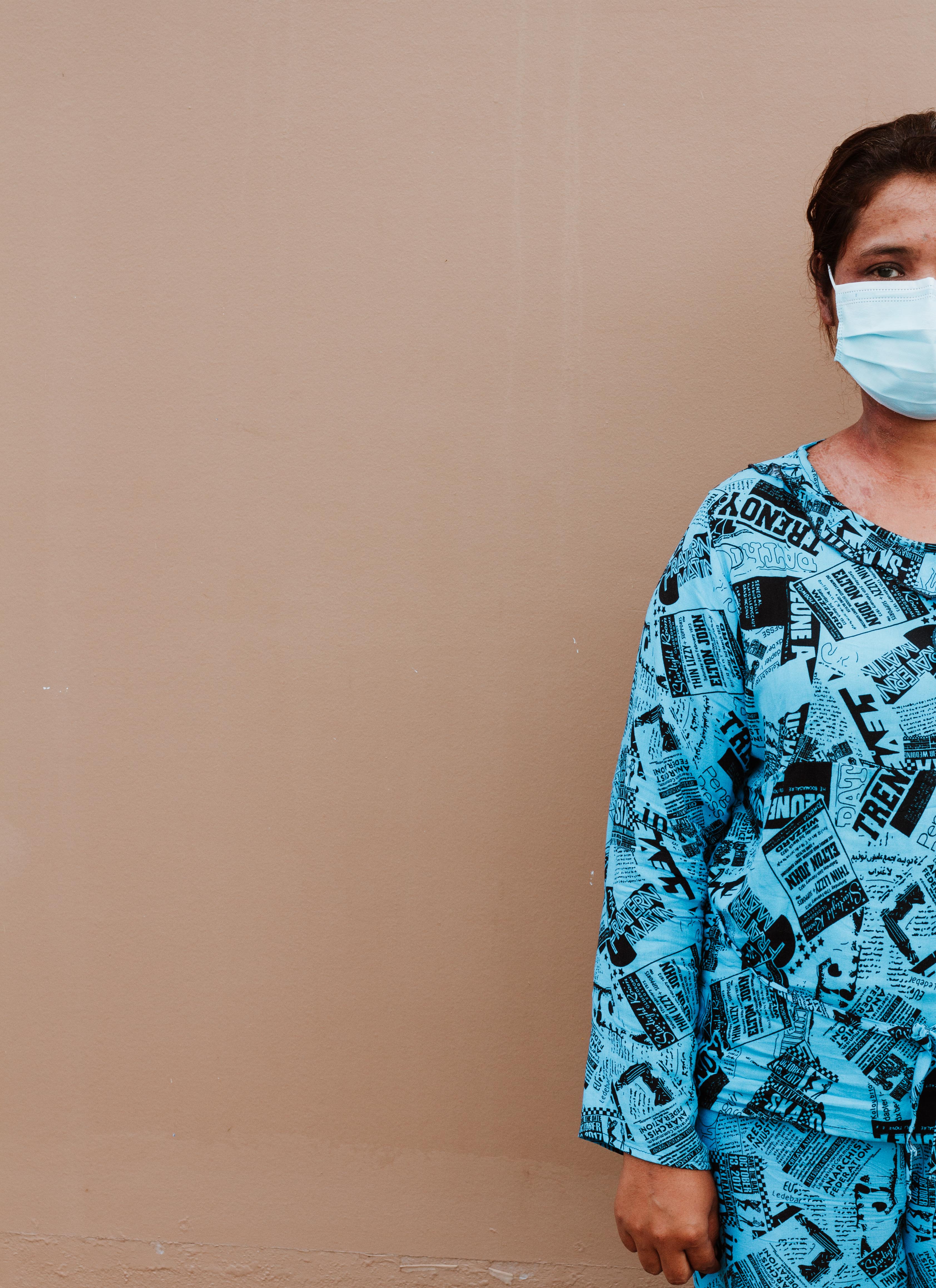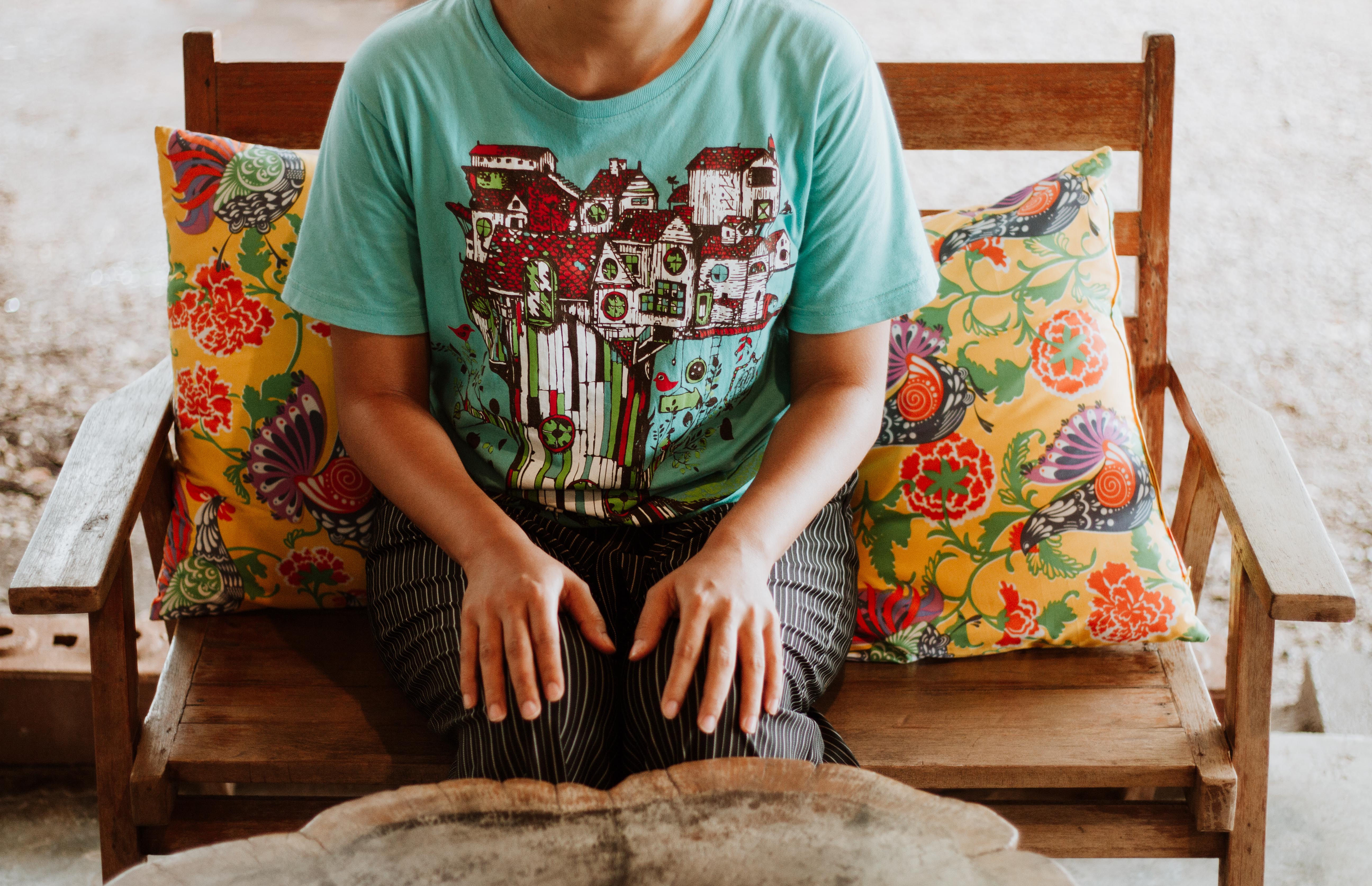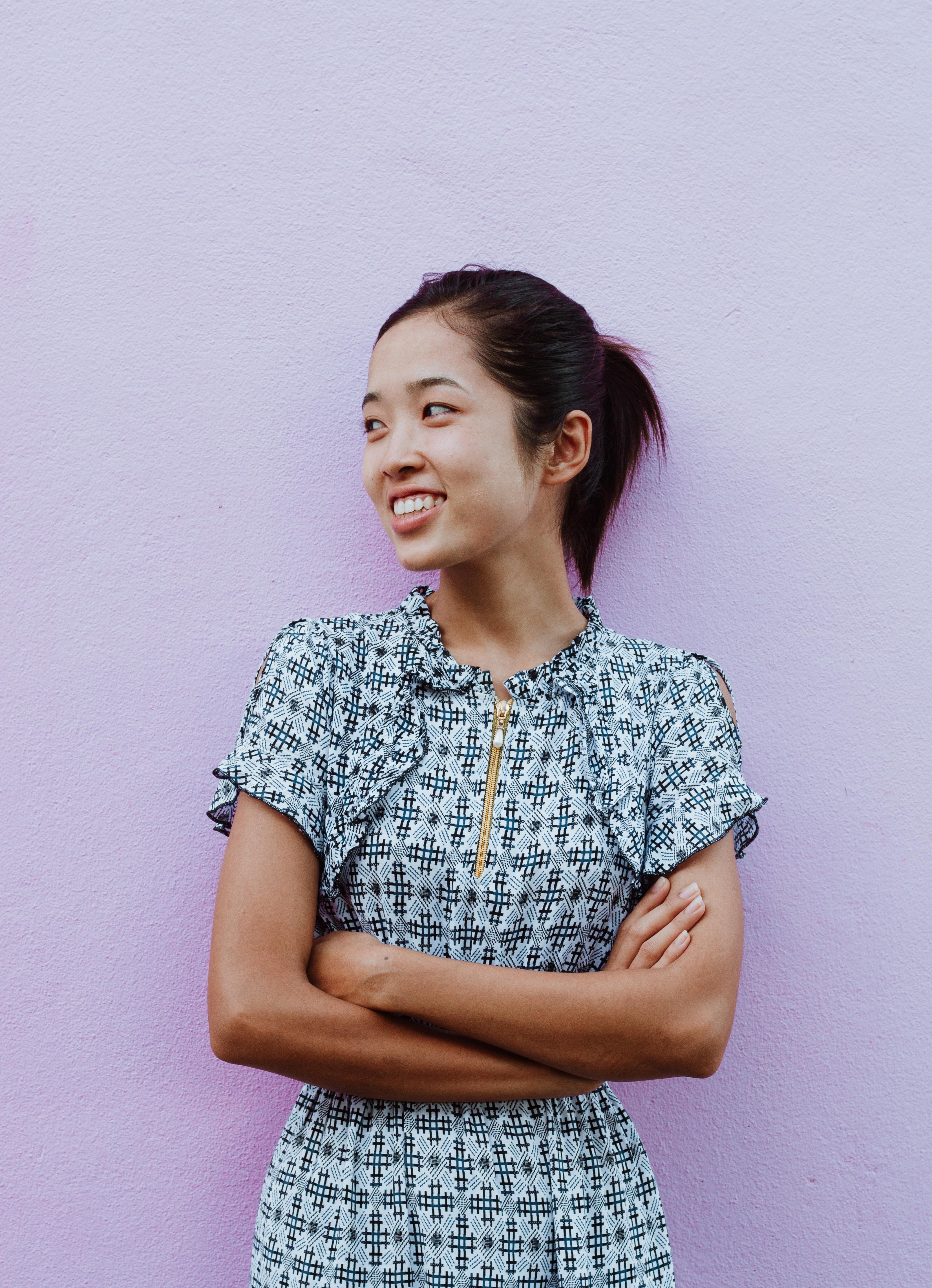Maggi Quadrini
 |
|
Although Thiri got to keep her job in Mae Sot, she now struggles with her limited access to healthcare after she developed a waterborne disease during the pandemic. (Image: Linn Let Arkar)
|
Three women working at a garment factory along the Thai-Burma border share their struggles and triumph living away from loved ones amid the COVID-19 pandemic
When 24-year old Chit Ban Wah heard that Thailand was closing its borders as a result of the COVID-19 pandemic in mid-March, she and her older sister, both operators at Top Form Brassiere Company Limited garment factory in the border town of Mae Sot, prepared to return to Burma. While in the taxi, she received a call from her employer asking her to stay.
“They told me if I leave, it will be very difficult to come back,” says Chit Ban Wah. “They also told me that if I left I would lose my job.”
Before Chit Ban Wah moved to Mae Sot in 2019 she worked selling cellphones in Burma, earning approximately 6,000 Thai Baht per month (190 USD). She now earns between 8,000 and 12,000 Thai Baht (257 USD – 385 USD) per month, the majority of which she combines with her sister’s salary to send home to their family in the bordering Burmese town of Myawaddy.
“I realized if I left to go home, there would be no more money coming in for my family,” says Chit Ban Wah.
38-year old Thiri, also an operator at Top Form Brassiere, had a choice to make too when the nationwide emergency decree was announced. She says it was a quick decision.
“I knew I had to stay in Thailand. I realized that it would be much harder to find a job in Burma with the pandemic,” she says.
The incentive for laborers to move to Thailand is high, as the opportunity to earn more money gives their families more economic security. Nationals from Burma make up the largest migrant worker population in Thailand, with recent estimates putting the figure at 2.3 million.
Top Form Brassiere is a Chinese-owned garment factory with three branches in Mae Sot. Workers make high-end female undergarments for clients including Calvin Klein and package them to be sold in Thailand, the United States of America, Canada and Europe. Of the 7,000 employees, eighty percent are women.
Zar Zar, 25 has been working at Top Form Brassiere in Mae Ku for a year and a half as an officer at the Packaging Department. She says at the beginning of the lockdown period, there was a lot of apprehension, saying people had to choose between their jobs or going back to Burma to be with their families.
“People want to stay where they are originally from. Thailand is not their home. But they also wanted to be able to financially support their families,” she says.
|
|
|
Zar Zar chose to stay with her garment factory job in Thailand, worried about the expenses and other difficulties she would face on her return from Burma. (Image: Linn Let Arkar)
|
The Burmese government offered an appeal to migrants to delay their return to 15 April and then 30 April to establish quarantine centers. According to the International Labour Organization, by mid-June, over 30,000 migrant workers had registered with the Myanmar Embassy in Bangkok and 1,500 were repatriated through the Mae Sot and Ranong checkpoints.
With very little protection to begin with as migrant workers, their rights as citizens when they return to their home country are compounded with institutionalized discrimination. Those crossing the border to be with their families risk discrimination by border officials and long waiting periods that are not conducive to the health safeguarding measures in effect during COVID-19.
Zar Zar has lived in Mae Sot with her husband and two children since 2013. Despite being afraid of a possible second wave of COVID-19 in Thailand, she feels safe and lucky considering how hard it has become to find a job now.
“My family says it is better if we are together suffering. They are not happy that I’ve not returned,” says Thiri who has a husband and two young daughters in Yangon.
When Thiri fell ill in September, things became even harder. Her reaction to drinking bad water has resulted in a dry, itchy and irritated skin rash that doctors have told her is contagious. She has had to take time off work and has struggled with accessing adequate, affordable treatment. Before the pandemic, she had a home in Mae Sot where her family would visit often and for long periods. The last time she saw her husband and children was December 2019. Since then, she has moved into a shared living space because she didn’t want to live alone.
Her employer at Top Form Brassiere provides compensation for 30 days from lost wages, but this is quickly coming to an end. Unsure of what to do next, Thiri is not overly optimistic about her future.
Somberly, she says, “I wish COVID-19 had never happened.”
|
|
|
Chit Ban Wah continues to comfort her ailing mother in the Burmese side of the border by calling her on the phone and social media. (Image: Linn Let Arkar)
|
Chit Ban Wah has also had her share of struggles. She has not been able to see her family for over six months. Adding to her stress is knowing that her mother is experiencing health problems.
“I’ve never been away from my family for this long,” she says. “I want to go home. My mother is not well – she cries every time we call.”
Both Thiri and Chit Ban Wah keep regular contact with their families by talking on the phone or through Facebook Messenger. If the border reopens and travel is safe, they are both interested in moving back to Burma.
However, Zar Zar says the authorities have made it difficult to return.
“They have to pay the authorities and then quarantine in Myawaddy. Even if workers want to return, they do not want to use all their savings to bribe officers and go back empty handed. Because people are scared, some have tried to cross illegally. I wish it was easier for us to return,” she says.
Regional, bilateral and state mechanisms must be strengthened to protect migrant workers from discrimination. Widespread arrests in Thailand are continuing as border patrol officials are granted permission to act under ‘special instructions’ and arrest migrant workers who are entering the country from neighboring countries.
In a case from August this year, Burma’s Tanintharyi regional government announced legal action against migrant workers who crossed the border illegally to Kawthaung from Thailand and Malaysia. This is yet another example of a protection issue being poorly managed. The reasons for illegal crossings must be considered, as should the ridiculous fines and jail times. The most vulnerable should not be targeted or scapegoated as they're least prepared to handle the crisis.
Unlike many factory migrants across the region, Thiri, Chit Ban Wah and Zar Zar say they feel protected at work. Every worker receives a work permit and visa paid for by Top Form Brassiere. With slow sales in mid-March as a result of COVID-19, the company decided to stop shipping in April and May. Nonetheless, tensions and fears in the factory have been hard to overcome. Orders have increased since the factory resumed shipping in June with many working overtime.
Despite the challenges that the three women have endured, Chit Ban Wah remains optimistic. She’s grateful for the opportunity she has to work and improve her and her family’s quality of life. Her advice to young women and girls looking for new opportunities is to challenge themselves.
“Don’t be afraid to go out and try new things,” she says.


